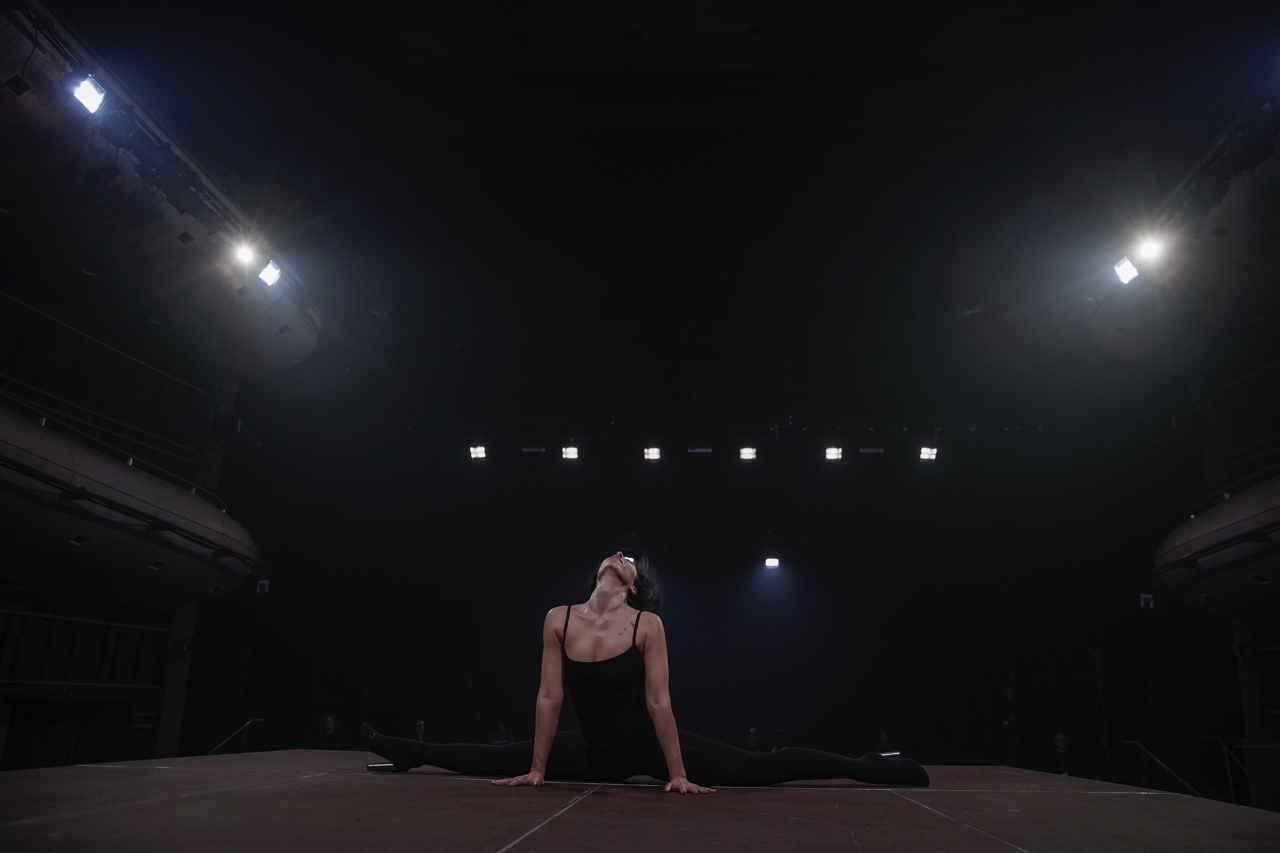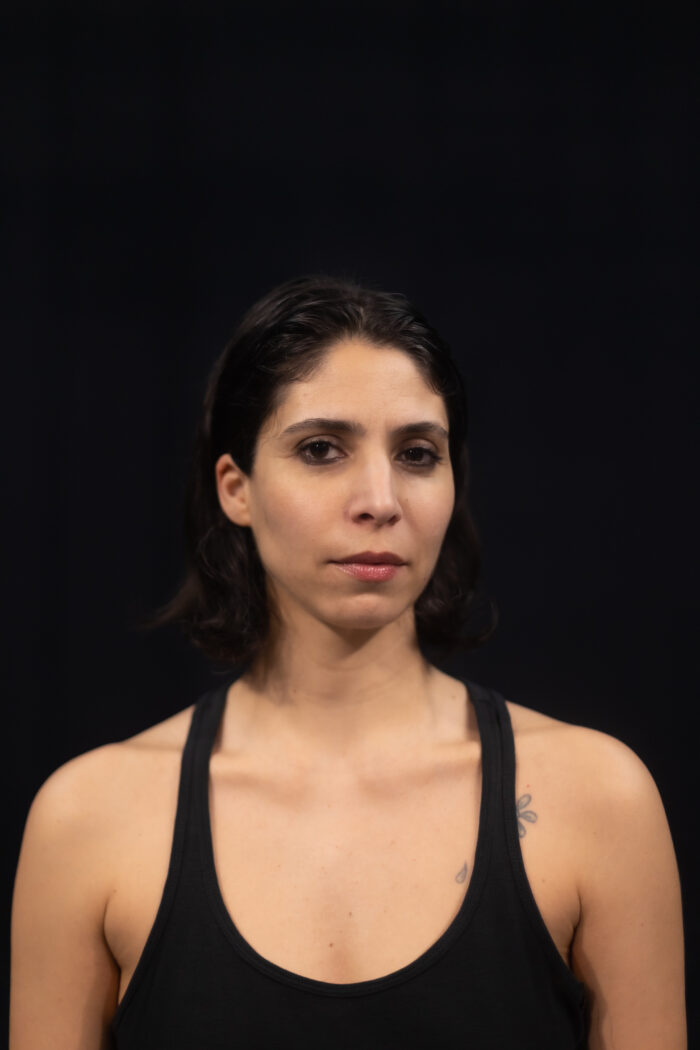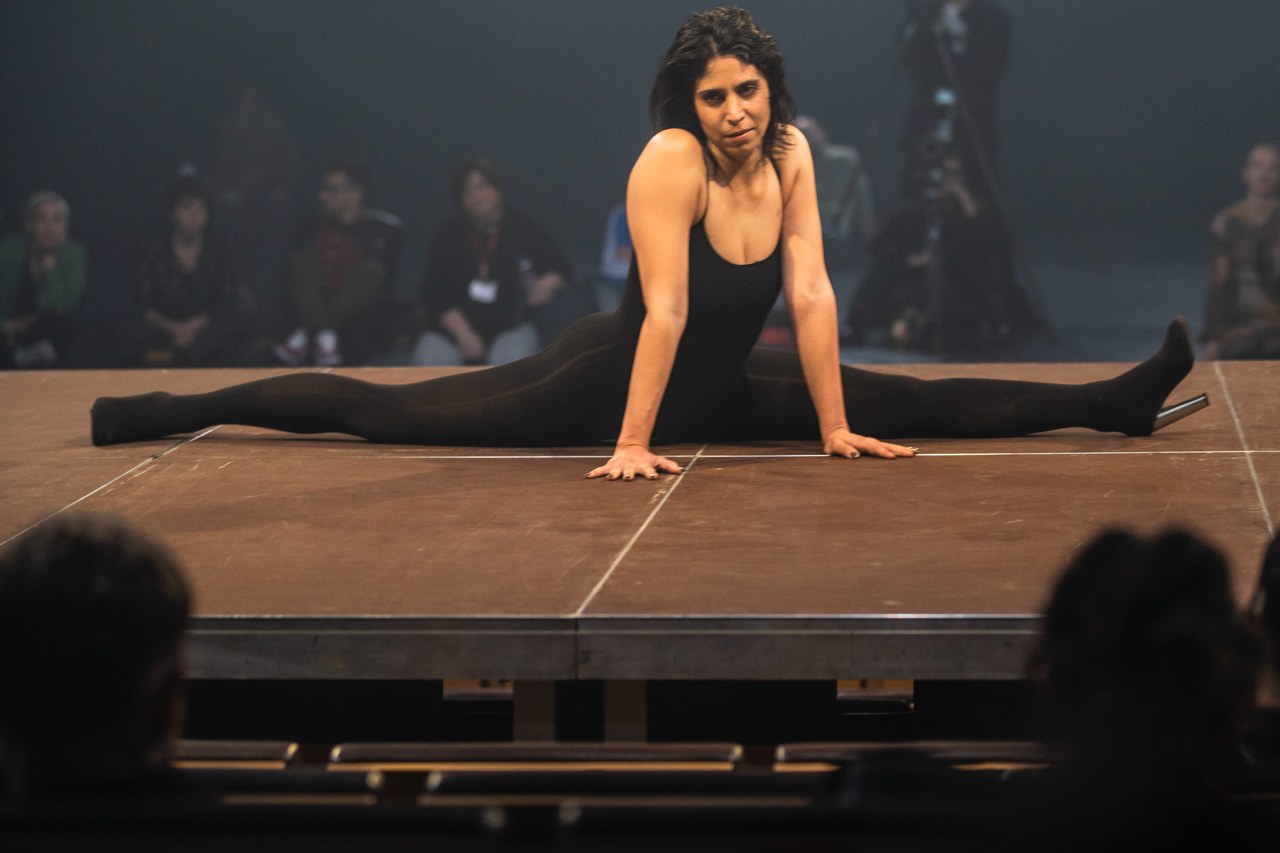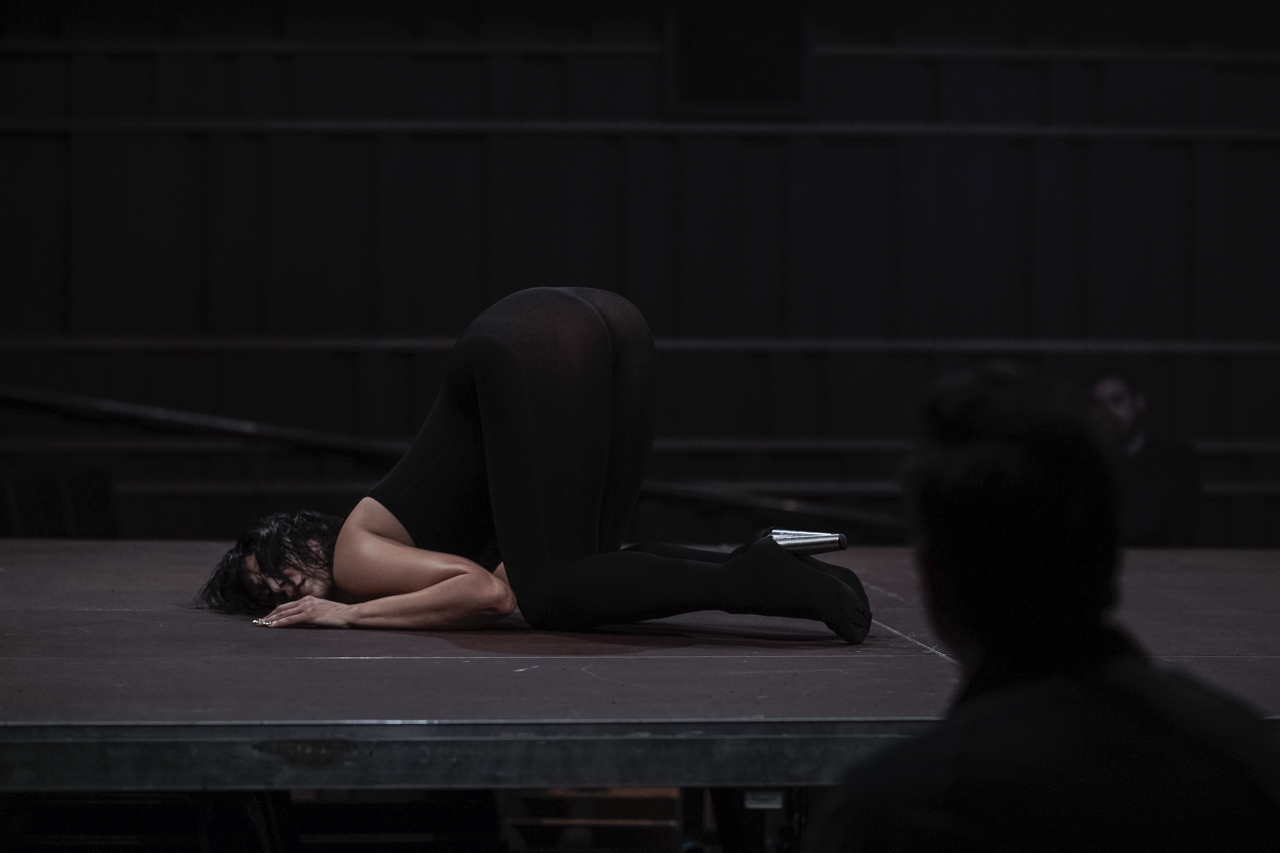Ahead of the UK premiere of her powerful solo work LANDSCAPE, we spoke to Cypriot choreographer & performer about the fragility of trauma and creating space for pleasure

Elena Antoniou in LANDSCAPE, credit Andreas Simopoulos for Onassis Stegi
Where did the idea for this production come from?
I felt ready to be personal, to expose my own journey as a woman, and to embrace the fact that my sexual body can coexist with my traumatised body. I was ready to tell my story and to turn it into something more collective. I started being at peace with my own inner landscape that was vulnerable and hurt, but also it was powerful and immense. And I had the right people around me, the right collaborators, so that I felt safe to expose myself and go towards a direction that would not be just about me, but more of a collective experience. A performance that will feel personal, but also universal.
Can you tell us more about the politics behind this work?

Elena Antoniou captured by Pinelopi Gerasimou for Onassis Stegi
As a woman, I have experienced all levels of sexism, and aggression, and devaluation. This is not something new. It’s a discussion that feminists have been talking about since the 60s and 70s. But now I feel that feminism is more inclusive. Patriarchy attacks femininity wherever it’s spotted: towards trans people, gay people, and of course, women of colour.
I myself come from Cyprus. It’s a small island in the Mediterranean, and patriarchy and the male gaze are so deeply rooted in my country, society, that even us as women, sometimes we struggle to recognise it. We grew up with this lens, filtering everything, through the male gaze. That’s how we were raised.
The idea of being a woman that can be explicitly sexual and look straight in the eyes of the beholder, and at the same time, be extremely vulnerable, is what LANDSCAPE is all about. To be free, to be anything without being judged, to be able to experience life as an individual, and not to play the roles the patriarchy asks of you.
How would you describe your movement style?
It’s all about exploring my physical and emotional limits. I play a lot with long pauses, repetitive movements, giving full attention to a single action. Drawing from my experience in durational performance, I use this as an exercise, as a tool. It’s helping me to make it real, to transform it, and to turn it into something else.
I’m interested in how time and duration reshape form and space. I work a lot with daily movements, gestures and images that the viewer can relate to, like a memory, something that they have seen, or maybe experienced before. But I think my most important element is the gaze. I’m the performer: you came to see me, but I can also see you.

Elena Antoniou in LANDSCAPE, credit Andreas Simopoulos for Onassis Stegi
Can you tell us how you got into dance?
I got into dance very late. I was a gymnast from a very young age. But even then, I was always drawn to the more artistic side, to the emotion, the expression, rather than the competitive aspect.
At the same time, I always loved theatre. I wanted to be on stage, it was a space in which I felt at ease. It was easier for me to communicate, to feel myself. I felt strong on stage. So, when I decided to end my career as a gymnast, I still wanted to find something to keep my body in shape, so I started ballet classes. I knew nothing about contemporary dance. So, as I discovered it, I realised that it offered me a new space for expressive expression. That realisation led me to study dance.

Elena Antoniou in LANDSCAPE, credit Andreas Simopoulos for Onassis Stegi
How do you prepare for doing such a personal solo?
Physically? Imagine me doing a squat with high heels! My preparation is similar to a professional athlete. I follow a specific workout in high heels because in LANDSCAPE, I’m wearing high heels. And if I feel strong in my body, then my mind and soul feel strong, too.
The truth is that even though I have performed LANDSCAPE several times, the memory of the trauma still engages with me. It’s not easy for me to carry. And the fragility remains. But this is the work: exploring how the fragility of trauma can create space for pleasure. The piece grows as I grow. The balance between trauma and pleasure is never fixed. It shifts following my here and now. So it’s different each time I perform.
